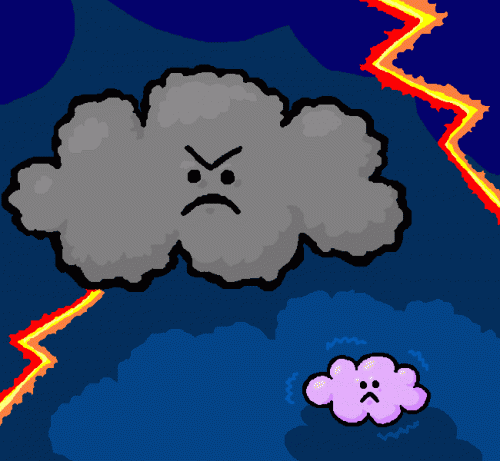lundi, 21 février 2011
Negativity

Negativity
by Brett STEVENS
Trying to grow up and be “cool” was a painful time. It is always every bit as immature as that previous sentence suggests. Some of the sheep surge out ahead socially and adopt attitudes and behaviors, and so many of the rest follow. It’s a big Ponzi scheme that keeps someone on top.
When you’re growing up however, especially in those too-painful-to-recall teenage years, “cool” is your ticket out of being a child. Before you were aware of social pressures, you just did what your parents told you and thought the same things were awesome that they thought were awesome.
Then you need to break away. Prove to the world you’re your own person, and you do that by negating all that happy harmless pleasant world of childhood, and racing into the cold arms of whatever adult pleasures and pitfalls you can find.
The goofy thing is that a decade on, you’ll find most people are doing the same thing: they’re adopting a pose they see on movie screens or TVs, or maybe read about or saw another person do, to be cool. The most common method is an affected disinterest or negativity, a kind of fatalism where you put all your energy into yourself and ignore the world.
If you wonder why sunglasses are featured in any media vision of “cool,” it’s because they (metaphorically) do this. They hide the eyes, the windows to the soul, and make you look entirely disinterested. While I walk through this wasteland, I’m above you all because I couldn’t care less, they say.
Yet like traffic staggers in cascading waves backward from a single car braking, the coolness Ponzi pyramid is like a game of Secret. You whisper the cool secret to a friend, he or she tells another, and so on across the room, and when it gets to the other side, it’s a degraded or tangential form of itself.
The result is that most people distill “cool” into negativity and apathy, which leaves them with nothing to like except themselves. They translate this immediately into bitterness, because you can only please yourself so much before you wonder why you’re caught in a repetitive loop.
Negativity underscores much of our society, but most of it is covert. People do not want to expose themselves to criticism so they do not speak of their negativity, only act out its effects, usually by denying the joy inherent to life and replacing it with a hidebound tendency to replace the possibility of joy with the certainty of the mundane.
- Jobs. We would all rather sit at do-nothing desk jobs where our responsibilities are few and nothing exciting happens, than explore more rigorous and less “safe” situations where we might actually feel alive.
- Ugliness. “Utilitarian” does not explain why our architecture is so brain-dead functional, blocky and ugly, or why we choose to line our streets in clashing signs and commercial messages. If public opinion turned against these, they’d vanish overnight.
- Love. Love is a risky playing field. Sex, and then settling for the person you can have sex with and not hate, is not. We like to think we’re romantics but really we’re searching for another high, orgasm or otherwise, to lift out us out of our pervasive negativity. But you cannot have it without risk.
- Anti-depressants. Much of our society is strung out on SSRIs. These drugs work by filtering out anything too intense, whether good or bad, leaving you a pleasantly confused zombie. It’s safer that way, but you miss out on the good that might be stuck to the bad because “what goes up, must go down” — sometimes.
- Culture. Surface is the word. Profundity makes us alarmed and makes our inevitable deaths and utter powerlessness at that event seem more like they are real and we will face them. Denial favors movies about the dramatic misery of others, unrealistic violence and catty sexual drama that when you think about actually living it, seems a pathway to the paralyzing boredom of actions without meaning.
We have been given a world where fruit grows on trees, blue sky sunny days wash over us like the touch of God, and there are uncountable challenges which can reveal infinite joy. It’s like a giant piece of paper that renews itself at the touch of our crayons. Yet rarely do you see it expressed this way.
In fact, people seem to prefer compulsion. I didn’t choose to be in love with her; I got flung into it by lust that I just couldn’t resist. The man is beating me down at the job but heck, I’ll get a twelve pack and watch some porn. I’m being forced to go out and chase away my fears, maybe conquer something I’d always wanted to experience.
These dark words make dark times. Our society prizes a kind of oblivious politeness that emphasizes only the positive because we believe none of it, and are looking for those uplifting little treats and moments of levity to distract us from what we feel has already won, a pervasive and radical depression.
No matter what we find at the ends of politics or philosophy, or how seriously we take it, our souls need to lift themselves up from this dark mire. By the grace of something unknown, we are here, we can think, we can decide, and we can make beauty in ourselves and our world.
If you stop to think of it, we live in paradise, except when by our own hands we choose to dwell in darkness.
00:10 Publié dans Réflexions personnelles | Lien permanent | Commentaires (0) | Tags : réflexions personnelles, philosophie, monde moderne, modernité |  |
|  del.icio.us |
del.icio.us |  |
|  Digg |
Digg | ![]() Facebook
Facebook



Les commentaires sont fermés.